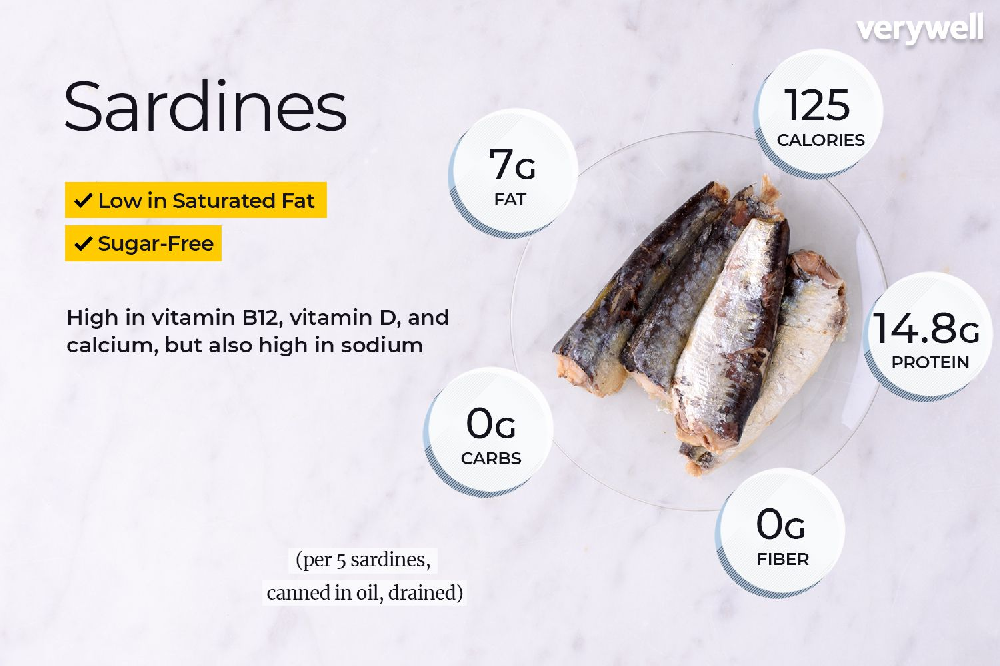Cans of fish contain a variety of nutrients, from Vitamin D to Omega-3 fatty acids and calcium. But did you know that these nutrients are not found in their purest form? There are some things you need to know before you begin eating canned fish. For starters, the fish fillet is not as healthy as the surrounding oil, which is often made of vegetable oils.
Vitamin D
Canned fish may be a good source of vitamin D. However, the vitamin D content of fish varies considerably, even within species. This means that you need to check the labels of various varieties of fish to determine if they contain enough vitamin D. If you are not able to get enough vitamin D from fish, you should consume other sources of protein, such as dried fish.
Canned mackerel is a great source of vitamin D. One 3.5-ounce can contains 114 IU of vitamin D, which is approximately 14% of the DV. In comparison, a single ounce of canned sardines has 193 IU, which is close to 20% of the daily recommended intake (RDI).
Canned tuna is also a good source of vitamin D. Canned albacore tuna contains 50 IU per 4 ounces. Canned sardines are another good source of vitamin D. Canned tuna is also cheaper than fresh fish. The vitamin D content of canned fish is more concentrated in light tuna than in albacore tuna.
Canned tuna is a great source of lean protein. It contains all essential amino acids and is a low-calorie option. It is also high in vitamin B12, which is essential for healthy blood. If you don't get enough of this vitamin, you can develop megaloblastic anemia, which can lead to fatigue, weakness, and nerve damage. In severe cases, vitamin B12 deficiency can even increase your heart rate and make you feel irritable.
Omega-3 fatty acids
Canned fatty fish is a great source of omega-3 fatty acids. It contains enough of these beneficial fatty acids to be easily absorbed by the body. However, there are a few important details that must be considered before consuming fish oil capsules. The first is the EPA and DHA concentrations of the fish. Although the levels of these fatty acids are variable among people, they are more beneficial when consumed with fat-containing meals.
The next step is to determine how much omega-3 fatty acids can be obtained from canned fish. The German company fishkombinat Rostock produces 200 g cans of mackerel fillet in tomato pulp. Each can contains 1.1 g of EPA and DHA and 2.5 grams of long-chain omega-3 fatty acids.
When consumed regularly, omega-3 fatty acids in canned fish can reduce inflammation. It also helps the body break down fat and prevents it from building up in the liver. Furthermore, the Omega-3 fatty acids are great for the body because they reduce triglycerides. They also promote a healthy immune system, reduce inflammation, and can prevent heart disease.
Consuming a daily diet rich in these fatty acids helps the body run like a well-oiled machine. In addition to improving the functioning of cell membranes, they also lower blood pressure, lower inflammation, improve mental health, and reduce the risk of diabetes and dementia.
Calcium
Canned fish is a great source of calcium. You can get 25% of your daily calcium intake from a 3 oz can of salmon or sardines. Also, canned fish has a healthy dose of omega-3 fatty acids. Canned fish is low in fat and can be served as a snack or a side dish. It can also be used as a sandwich spread or added to homemade mashed potatoes. It is also great served over pasta, quinoa, or kale.
Calcium can be found in many foods. However, the amount your body absorbs is not as high as what you'd get from dairy foods. In fact, dairy foods only contain 30% of the calcium your body needs. This is because plant foods have a higher bioavailability rate. For example, bok choy has 50 percent bioavailability, which means that it will be absorbed by your body more easily.
Fish bones contain a significant amount of calcium. Some supplements are made from fish bones, which are a valuable by-product from the fish farming industry. Depending on the type of bone, the calcium content will vary. Salmon and cod bones, which are acellular, are high in calcium.
Besides being high in calcium, sardines are also high in vitamin D, which is necessary for good bone health. They are also a great addition to a diet that is low in dairy products. Sardines are also high in protein, which keeps you full longer and reduces sugar cravings. This means sardines can help you burn more fat and increase your muscle mass.


It is loved by people of all ages, and is considered to be an ideal source of nutritional benefits. Canned tuna is a great source of protein···

Canned corn is an excellent food item that is both affordable and nutritious. Its production process is rigorous, ensuring that the quality ···

Our products are of exceptional quality and can be customized to meet your needs. We invite you to try our canned mushrooms today and experi···

Copyright © 2003 Zhangzhou Can Food Co.,Ltd ICP15488684